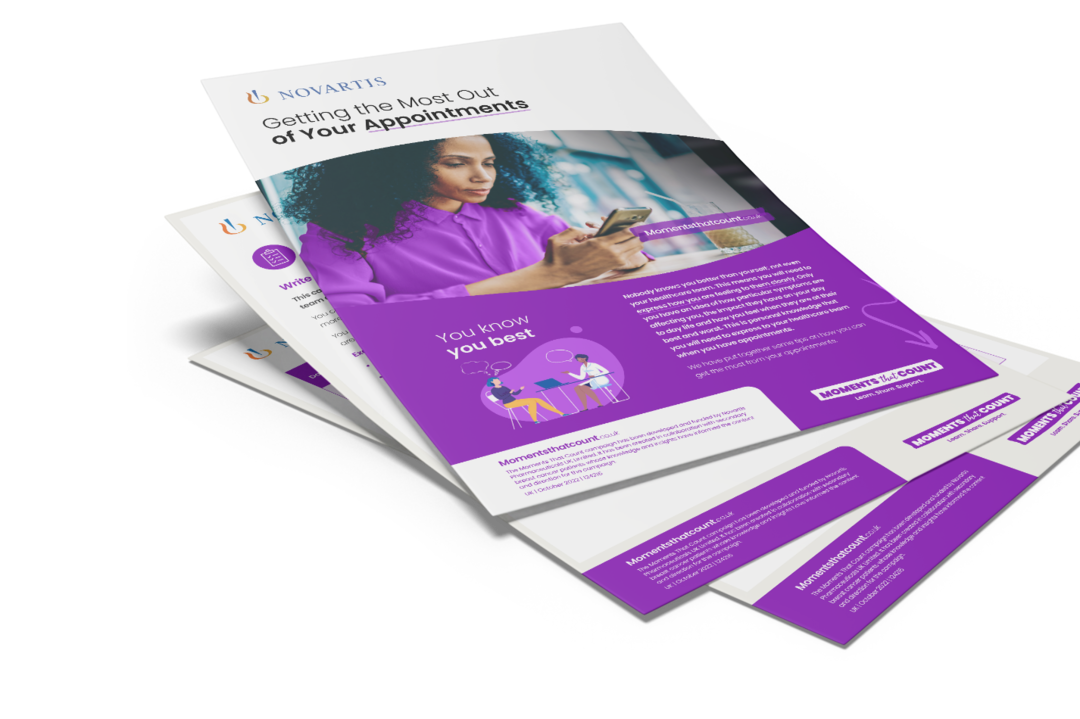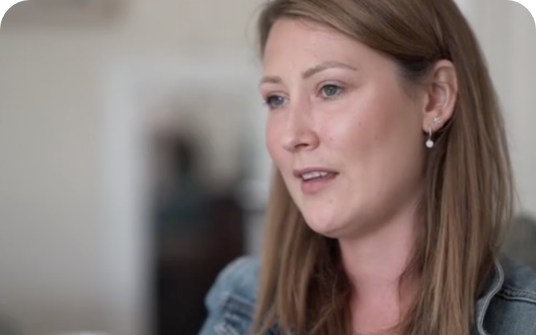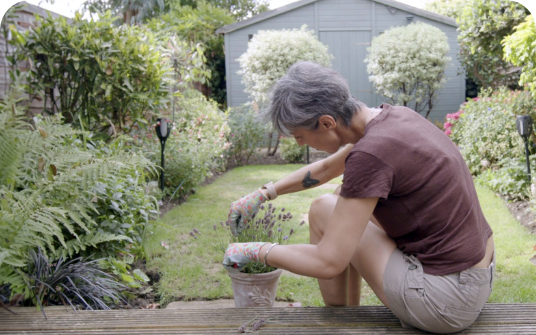Breast Cancer Recurrence
One of the biggest fears patients face after achieving remission is the recurrence of cancer.
Moments That Count has been developed and funded by Novartis Pharmaceuticals UK Limited and is intended for a UK general public audience.
One of the biggest fears patients face after achieving remission is the recurrence of cancer.
The priority when treating early breast cancer is to try to minimise the risk of it returning, and although treatments have improved in recent decades, many patients still experience recurrence years or sometimes months after primary breast cancer.1
Breast cancer recurrence can either be local (cancer which comes back in the same breast), regional (cancer which comes back in the nearby lymph nodes) or distant (cancer which has spread to distant parts of the body and become metastatic, advanced or secondary).2
With that in mind, here are some tips to help minimise your risk of recurrence after achieving remission:

If caught and treated early, breast cancer will not come back. Patients are “cured” after “ringing the bell”
Breast cancer can return even decades after initial diagnosis. Treatment options, like adjuvant therapy, may help reduce this risk.5

Age 50 and younger is too young for breast cancer
Yes, breast cancer typically occurs in older women, but breast cancer diagnoses in younger people are increasing worldwide.6,7,8

Only women can get breast cancer
While breast cancer is more prevalent in women, both men and women can receive a diagnosis.9
Your healthcare team is your best resource throughout your treatment. Talk openly and often with them about your doubts, questions and concerns. We have developed a guide to support you in having these conversations with some tips to help you find the information you need.

You may also like...

Crucial conversations in breast cancer
Discover how speaking openly and honestly about your needs and intimate subjects can help you on your journey.

Health coaching video series
Join Dr Alastair Duff in this short video series as he talks you through some common struggles cancer patients face.

Breast cancer diagnosis
Understand the techniques used to diagnose breast cancer, how to handle a diagnosis and discover who will make up your multidisciplinary care team.
References
UK | January 2024 | 293264
Moments That Count has been developed and funded by Novartis Pharmaceuticals UK Limited. It has been created in collaboration with secondary breast cancer patients whose knowledge and insights have informed the content and direction for the campaign.
This website is part of a programme that is funded by Novartis Pharmaceuticals UK Limited. Novartis Pharmaceuticals UK Limited is a private limited liability company registered in England and Wales under number 119006. Registered office 2nd Floor, The WestWorks Building, White City Place, 195 Wood Lane, London, W12 7FQ. Use of this website is governed by our Terms of Use and the Cookies and Privacy Policy.
Reporting side-effects
If you get side effects with any medication you are taking, talk to your doctor, pharmacist or nurse. This includes any possible side effects not listed in the information leaflet that comes in the pack. You can report side effects via the Yellow Card Scheme at www.mhra.gov.uk/yellowcard. By reporting side effects, you can help provide more information on the safety of your medication.
©2024 Novartis Pharmaceuticals UK Ltd - UK | April 2025 | 124182-5 This site is intended for a UK general public audience.
